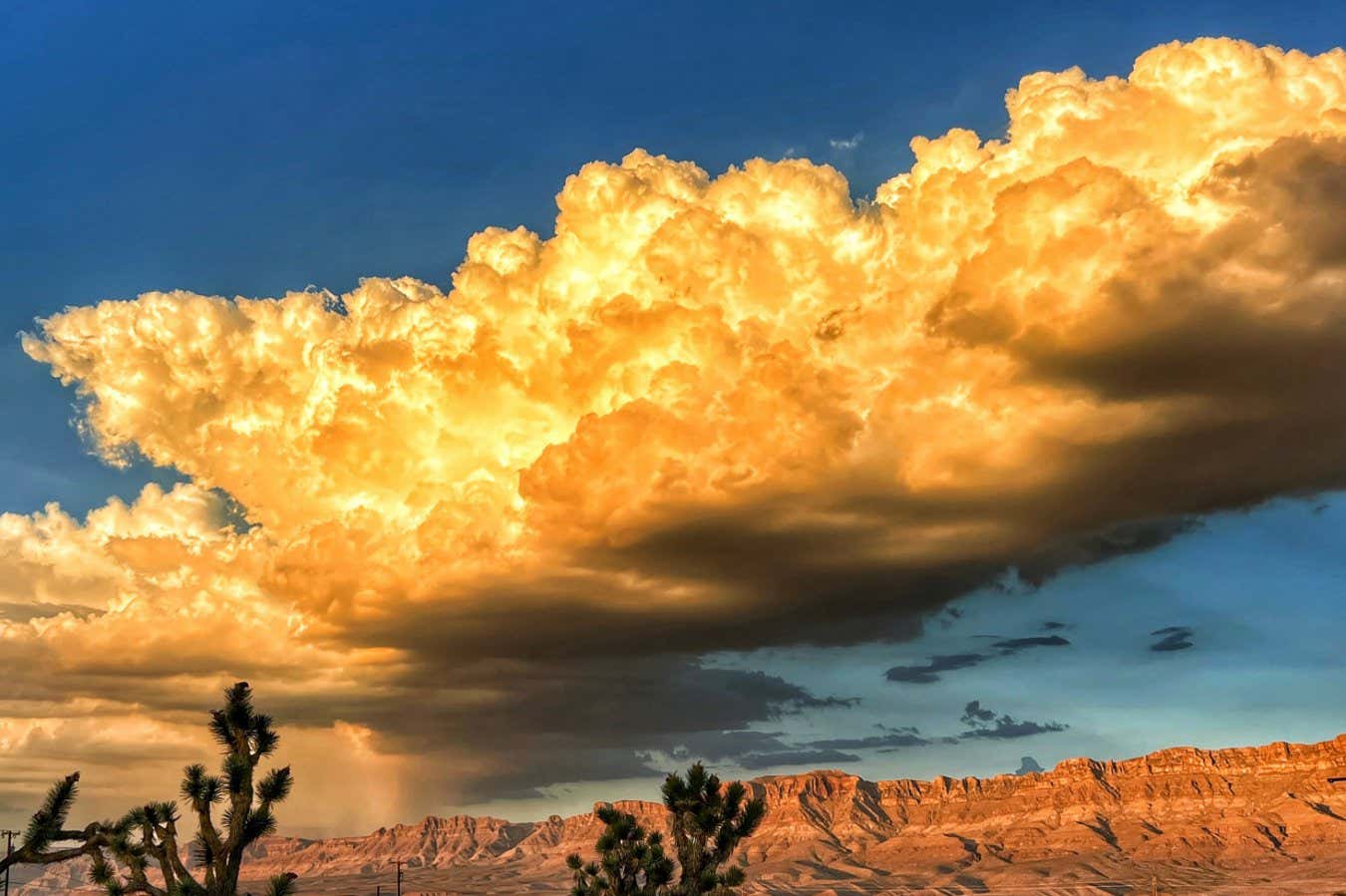
Eric S Neitzel Fireground Communications LLC/AdobeStock
One of the rare places in New York City where you can get a good view of clouds is the Central Park reservoir. Looking north from its edge, a gap between the buildings is wide enough to see them roll in from the harbour. This is where climate scientist Kara Lamb suggests we meet for a bit of cloud watching.
When we do, the sky is crowded with fluffy cumulus beneath a ceiling of altostratus – one, I venture, is very like a whale. But Lamb, who studies clouds at the city’s Columbia University, sees something less whimsical. “Clouds are fascinating because they are cool to look at,” she says. “But I think about them more from a climate perspective.” That means making sense of how the sunlight they reflect and the heat they trap below influences Earth’s temperature.
What casual cloud watchers may not know is that determining how this balance will change in a warming world makes clouds the biggest unknown in predicting future climate change. Will the world warm by a manageable 1.5°C or a hellish 4.5°C, given a doubling of carbon dioxide from pre-industrial levels? Our poor grasp of clouds is the biggest culprit regarding this uncertainty.
But researchers are making progress. Lamb, for one, is focused on ice crystals in clouds, which play a surprisingly large role in their climate impact. Others use cloud chambers, with plans for one…





